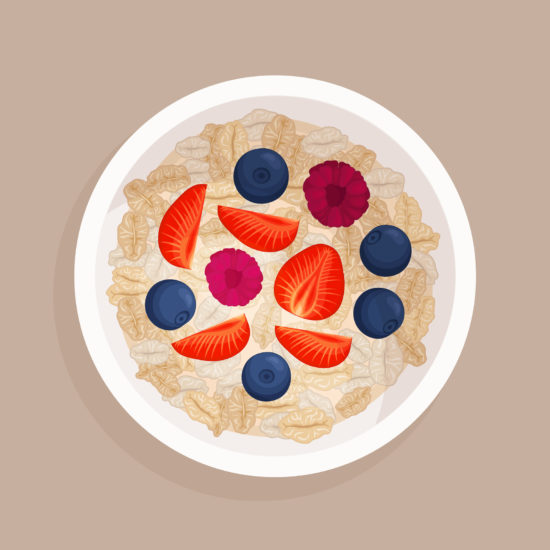Experts have long emphasized that diet can only do so much to reduce uric acid, a metabolism waste product that can crystallize in the joints and cause gout.
In fact, research presented at the 2020 medical meeting of the American College of Rheumatology found that diet changes have a small impact on lowering uric acid levels compared to taking a uric acid-lowering medication. When diet is recommended as a method for managing gout, it often consists of avoiding high-purine foods, which include shellfish and certain seafood, alcohol, high-fructose corn syrup, and organ meats like liver. Purines are a substance found in certain foods that get broken down into uric acid.
A low-purine diet, however, is not easily sustainable. “It’s not palatable and may involve foods that are detrimental to cardiovascular health,” Stephen P. Juraschek, MD, PhD, told Healio Rheumatology. Dr. Juraschek is the lead author of a recent study that looked at how following the DASH diet affects uric acid levels.
His research, recently published in the journal Arthritis & Rheumatology, suggests that the DASH diet can lower uric acid levels and may be a wise choice for people looking to eat healthier as part of their gout management.
What Is the DASH Diet?
The DASH eating plan emphasizes whole grains, fruits, vegetables and low-fat or fat-free dairy while limiting saturated fats and processed foods. DASH is an abbreviation for Dietary Approaches to Stop Hypertension. The diet is intended to be a lifelong healthy eating plan to lower high blood pressure and be good for the heart. People with gout are also at an increased risk of cardiovascular disease.
For this study, Dr. Juraschek and his coauthors retrieved stored blood samples from the original DASH trial. Published in the New England Journal of Medicine in 1997, the original DASH trial compared the effects of three different diets — a typical American diet, a fruit- and vegetable-rich diet, or a DASH diet — on blood pressure in 459 adults. The researchers looked at participants’ levels of uric acid at the beginning and the end of the eight-week study.
They found that the samples from people on the DASH diet had less uric acid at the end of the trial compared to people on the typical diet.
Will the DASH Diet Reduce My Risk of Gout?
Though the recent study suggests that following a DASH diet may reduce uric acid levels, it is still a small amount compared to the impact that taking medication for gout can have on reducing uric acid.
Additionally, there were several limitations to the study that warrant a need for more research.
To start, participants were not screened for gout when the blood samples were originally taken, nor were they assessed for gout attacks during the eight-week study span. Additionally, the diets were adjusted to minimize weight loss among participants, thus underestimating the full impact of diet on uric acid in the setting of weight loss. (Losing weight if you’re overweight is also beneficial for gout management.) Finally, because the study tested dietary patterns, researchers could not isolate which specific food groups or micronutrients may account for the reduction in uric acid.
Future studies must be conducted to better understand the potential role of the DASH diet in the management of gout. That said, the findings suggest that eating a well-rounded healthy diet that is good for the heart is also good for gout.
It may be the case that people with gout are better off focusing on an overall healthy eating pattern than on eliminating high-purine foods.
“We hope our study continues to highlight the importance of healthy diet, specifically the DASH diet, as a strategy for greater health among adults with gout,” Dr. Juraschek told Healio.
Be Part of Research with ArthritisPower.
Join CreakyJoints’ patient-centered research registry and participate in voluntary studies about managing arthritis. Sign up here.
A diet that may stave off heart failure. Harvard Health Publishing. August 2019. https://www.health.harvard.edu/heart-health/a-diet-that-may-stave-off-heart-failure
Appel LJ, et al. A Clinical Trial of the Effects of Dietary Patterns on Blood Pressure. The New England Journal of Medicine. April 17, 1997. doi: https://doi.org/10.1056/NEJM199704173361601.
DASH Eating Plan. National Heart, Lung, and Blood Institute. https://www.nhlbi.nih.gov/health-topics/dash-eating-plan.
Juraschek S, et al. Effects of Dietary Patterns on Serum Urate: Results from the DASH Randomized Trial. Arthritis & Rheumatology. December 8, 2020. doi: https://doi.org/10.1002/art.41614.
Laday J. DASH diet reduces serum urate, especially in those with hyperuricemia. Healio. December 23, 2020. https://www.healio.com/news/rheumatology/20201223/dash-diet-reduces-serum-urate-especially-in-those-with-hyperuricemia.
Topless R, et al. The Comparative Effect of Exposure to Various Risk Factors on the Risk of Hyperuricaemia: Diet Has a Weak Causal Effect [abstract]. Arthritis & Rheumatology. November 2020.https://acrabstracts.org/abstract/the-comparative-effect-of-exposure-to-various-risk-factors-on-the-risk-of-hyperuricaemia-diet-has-a-weak-causal-effect.






